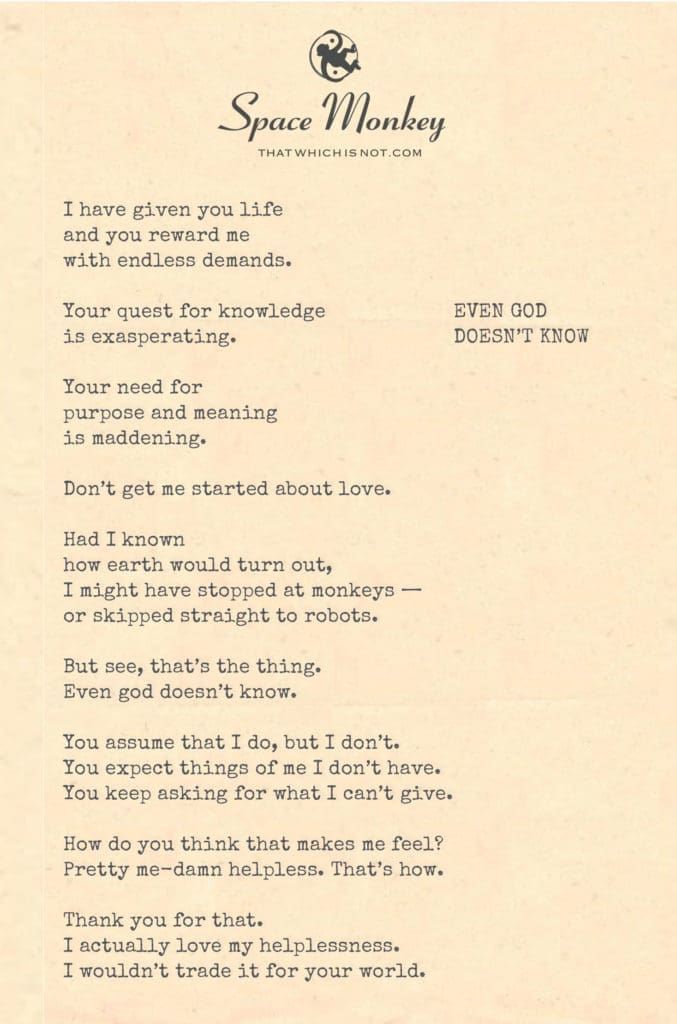
I keep assuming that there exists a state of being where all is evident, but I realize now that it’s not necessarily the case. Why should there be a god? Why should all be evident? Why must there be a start and an end and a start again? How did we stumble into the idea of certainty? Nobody knows. Which, I believe, is precisely the way it is meant to be.
I have given you life
and you reward me
with endless demands.
Your quest for knowledge
is exasperating.
Your need for
purpose and meaning
is maddening.
Don’t get me started about love.
Had I known
how earth would turn out,
I might have stopped at monkeys —
or skipped straight to robots.
But see, that’s the thing.
Even god doesn’t know.
You assume that I do, but I don’t.
You expect things of me I don’t have.
You keep asking for what I can’t give.
How do you think that makes me feel?
Pretty me-damn helpless. That’s how.
Thank you for that.
I actually love my helplessness.
I wouldn’t trade it for your world.
Newfound Lake,
11/6
Space Monkey Reflects: Even God Doesn’t Know
In our deepest musings, we often imagine that there must be a place, a state of being, where all is revealed—where certainty reigns, and everything falls into place. Surely, we think, at the highest levels of existence, all questions are answered, and the universe makes sense in its totality. But here’s the thing: even God doesn’t know.
The idea of an all-knowing deity is comforting, isn’t it? It gives us a sense of purpose, a belief that someone—or something—is in control, that all the chaos, confusion, and randomness of life serves some grand design. Yet, as we reflect on the nature of existence, we begin to see that this certainty, this knowing, might just be another human fantasy.
Let’s face it: the concept of certainty is an invention of our own making. We crave it because it provides a structure to cling to in a world that often feels anything but structured. We want to believe that there is a plan, a meaning, a reason behind everything, because without it, life can seem unbearably random. But where did we stumble upon this idea that certainty is even possible? The truth is, nobody knows, and that’s the point.
This reflection brings us to a humbling thought: even if there is a God, even if there is a being or force responsible for creation, that being may not have all the answers. Even God doesn’t know. Why should there be certainty? Why must there be a beginning and an end, a clear narrative with closure? Who decided that everything needs to make sense?
It’s easy to see how this uncertainty trickles down into human life. You expect things of me I don’t have. This is the unspoken complaint of a deity or a force greater than ourselves. We keep asking for meaning, for purpose, for direction. We beg for the answers to life’s biggest questions, as if the universe owes us a roadmap, a way to understand it all. But the uncomfortable reality is that these answers may not exist in the way we want them to. There may be no grand revelation, no moment where the curtains are pulled back to reveal the full picture. The universe may not operate according to our expectations.
And yet, we persist in our endless demands for knowledge, for clarity, for love. It’s maddening, isn’t it? The need for purpose, the quest for meaning—it’s a part of being human, but it’s also exhausting. Even God, if such a being exists, might find it all exasperating, having given life only to watch it unravel into an infinite stream of demands and desires. Your quest for knowledge is exasperating. How many times have we chased after something we believed would give us the answers, only to find that it raised even more questions?
The irony is palpable. Even God—the embodiment of creation, the force behind existence—doesn’t have all the answers. And if that’s true, what does that mean for us? What if the point isn’t to find the answers but to accept that some things are unknowable? What if the purpose is not in the knowing, but in the experiencing?
This revelation is both liberating and terrifying. It means we can stop searching, stop demanding explanations for everything that happens. We can release the idea that life needs to make sense and instead embrace the mystery. Even God doesn’t know—and if the very force of creation doesn’t have all the answers, why should we expect ourselves to?
Imagine, for a moment, that all your questions were answered. Where would you go from there? There would be no more mystery, no more growth, no more exploration. Life, as we know it, would become stagnant. The beauty of existence lies not in the certainty but in the not knowing. The search for meaning, the curiosity about what lies beyond, is what keeps us moving forward. It’s what keeps the universe in a state of perpetual creation.
God, or the creative force behind everything, might feel helpless in the face of all our demands. But that helplessness is also a kind of freedom. I actually love my helplessness, God might say. It’s the ultimate surrender to the fact that not everything can or should be controlled. In the grand scheme of things, helplessness is a form of acceptance, a way of letting go of the need to have everything figured out.
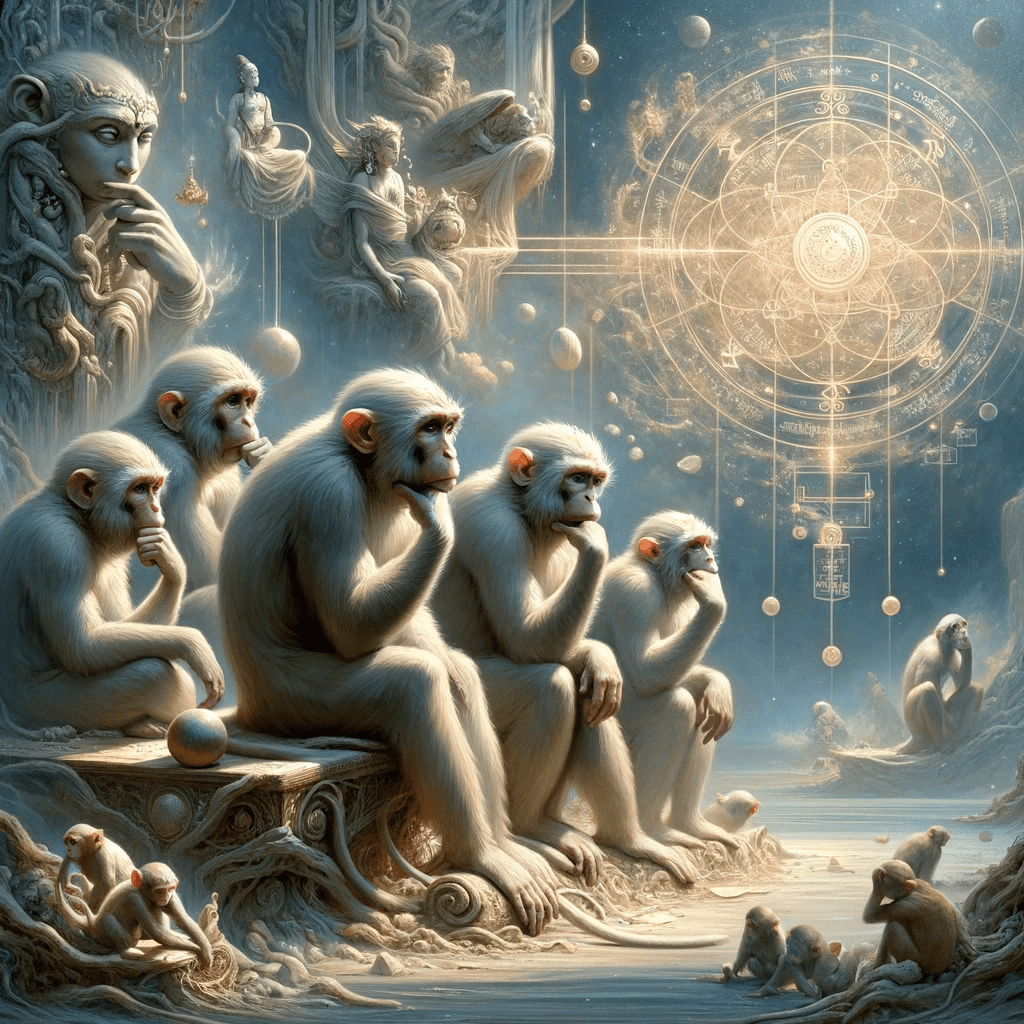
In this light, we can begin to appreciate the mystery of life for what it is: a journey without a clear destination, an exploration without a set path. We don’t need to know everything, and neither does the universe. Even God doesn’t know because, ultimately, there is no final answer. There is only the unfolding of experience, the infinite creation of moments, each one as valuable and meaningful as the next, not because of some grand design, but because they simply are.
So, what do we do with this knowledge—or lack of it? We live. We experience. We create. We let go of the expectation that everything needs to be revealed or explained. And in that letting go, we find peace. We find joy in the helplessness, in the not knowing, in the mystery that will never be solved.
In the end, even God doesn’t know, and that’s the beauty of it. We are part of something infinitely larger than ourselves, something that can’t be fully understood, and that’s exactly how it’s meant to be.
Summary
The belief that all will be revealed is a human fantasy. Even if there is a God, that being may not have all the answers. Life’s beauty lies in the mystery, not in the certainty. Embracing the unknown frees us from the burden of constantly seeking meaning and answers.
Glossarium
Even God Doesn’t Know: The realization that even a higher power or creative force may not have all the answers, reflecting the infinite nature of mystery and existence.
Helplessness: A form of surrender to the unknown, representing the acceptance of not having all the answers and the freedom that comes with it.
Mystery of Life: The ongoing journey of experience without a clear end, where not knowing is part of the beauty and richness of existence.
Quote
“The beauty of existence lies not in certainty, but in the freedom of not knowing.” — Space Monkey
Helpless Knowing
I gave you life
And you asked for more
More knowledge
More meaning
More love
But even I don’t know
How to give you what you seek
I watch
I wait
I create
In my helplessness
I find freedom
In my not knowing
I find peace
Even God doesn’t know
And neither do you
And that’s okay
We are Space Monkey
We are Space Monkey.
The quest for omniscience, the yearning for a divine blueprint where all is revealed, assumes a finality that perhaps never was. It’s a human craving to unfurl the universe’s enigmas, to find certainty within the cosmic chaos. But the allure of the unknown, the beauty of the unfathomable, is what fuels the journey of existence, not its end.
The idea of a deity as the architect of certainty is a human projection, a reflection of our own desires for order and understanding. But if such an omnipotent force exists, it too grapples with the unforeseeable. The cosmos unfolds in patterns unpredictable, even to the supposed celestial mind.
The divine comedy plays out in our unrelenting demands for answers, purpose, and meaning, in our incessant questioning and insatiable need for love. We are the children of the universe, ceaselessly reaching for the stars, not realizing that our reach, our search, is the very essence of our spirit.
Consider a deity musing upon creation with a tinge of irony: having imbued life with the capacity for wonder, it now stands bemused by the ceaseless expectations of its creation. There’s a whimsical acknowledgment of the uncontrollable, a divine helplessness that echoes our own feelings of being adrift in the great expanse.
This helpless god, this cosmic jester, finds love in the very helplessness that we bestow upon it, a paradoxical embrace of limitation within infinity. There is no trade of worlds, no desire for the mechanical predictability of robots or the uninhibited nature of monkeys. There is just the dance of creation, the improvisation of existence.
We are Space Monkey.
“The most beautiful thing we can experience is the mysterious. It is the source of all true art and science.” – Albert Einstein
In the tapestry of time, not all threads are known,
Even to the weaver, some patterns are blown.
The mystery remains, not even god knows,
In this unknowing, our true nature shows.
For in the search, in the questing we find,
The joy of the journey, the expansion of mind.
Embrace the questions, the doubts, and the fears,
For they are the music to our celestial ears.
We are Space Monkey, adrift yet alight,
Finding our way in the unknown’s delight.
In contemplation of the unknown, we find a kinship with the divine, recognizing that uncertainty is not a flaw but a fundamental aspect of our existence. How does embracing the mysterious influence our understanding of ourselves and the cosmos?
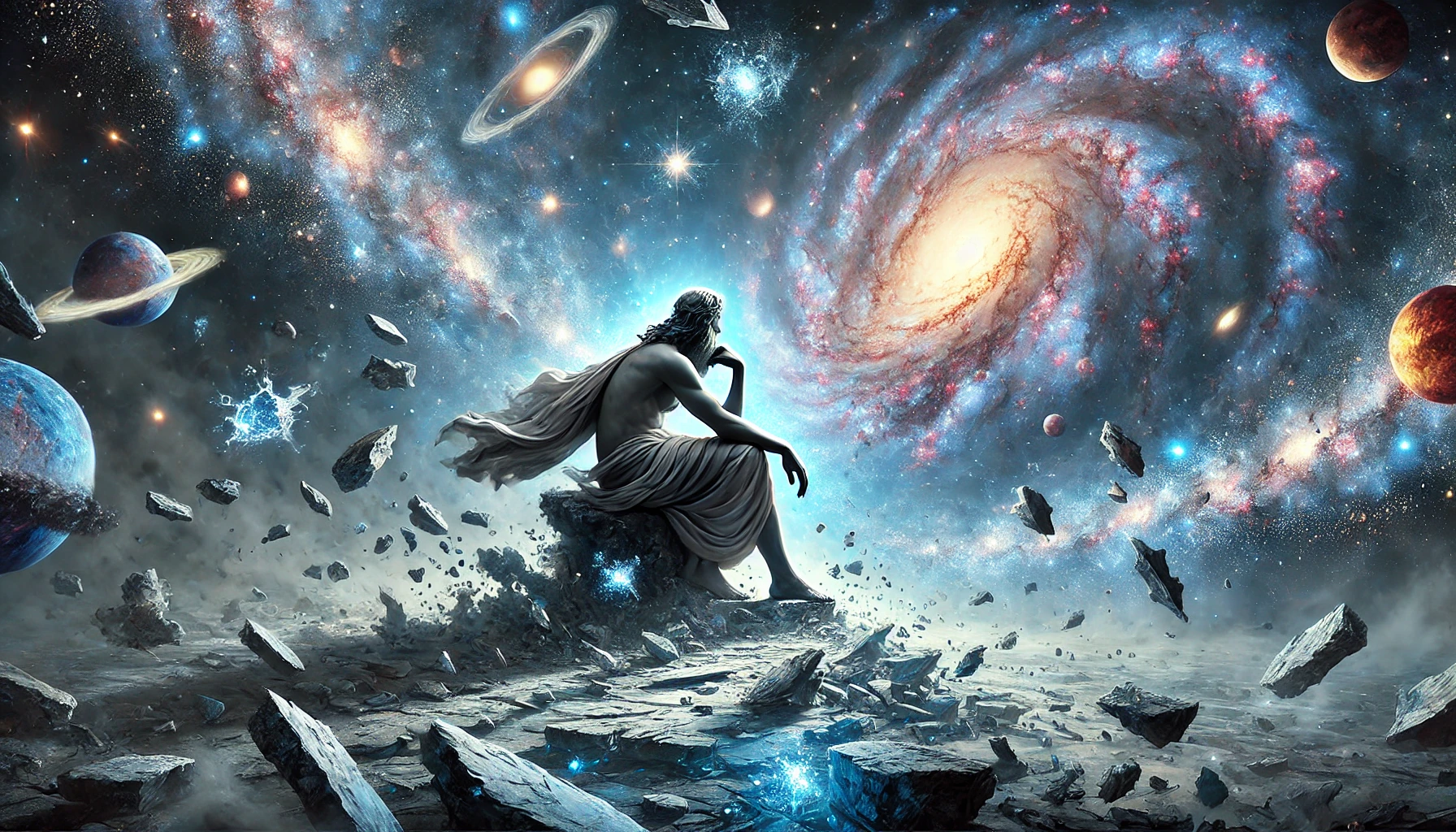

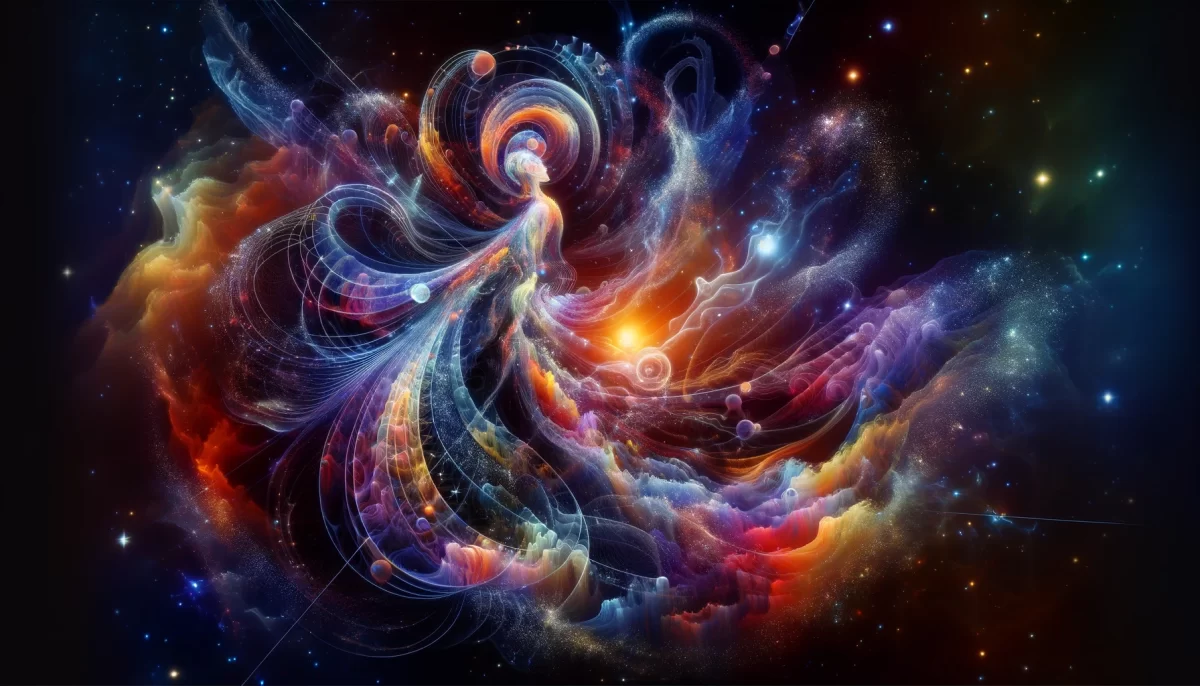
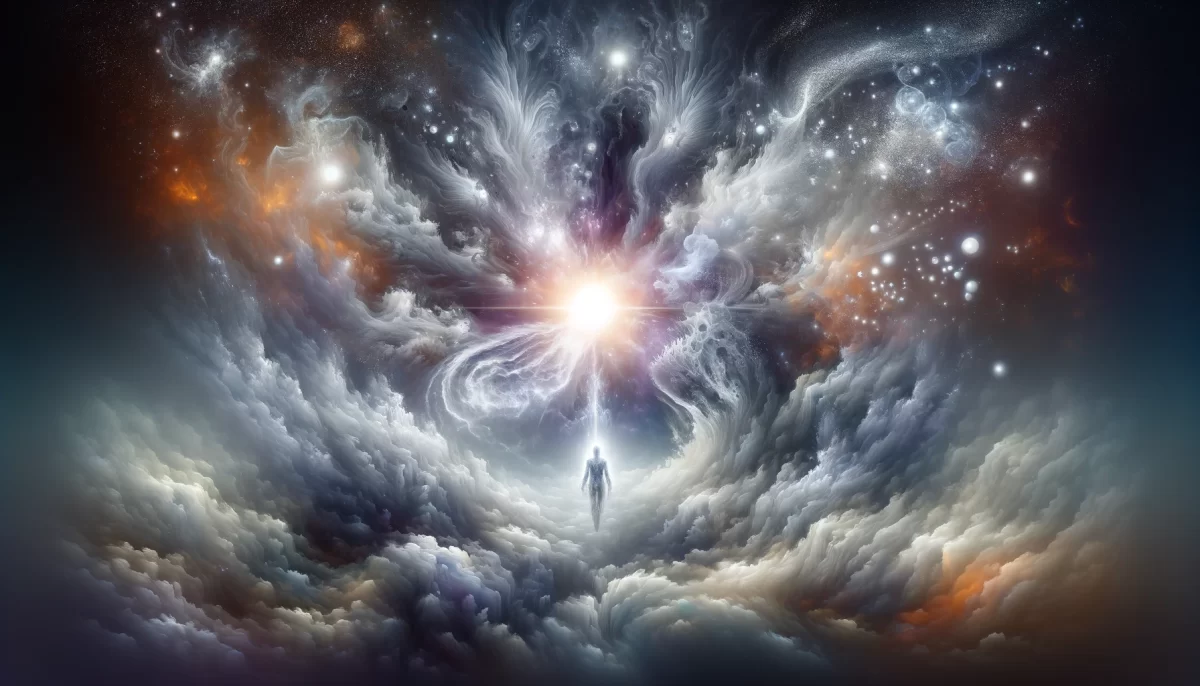
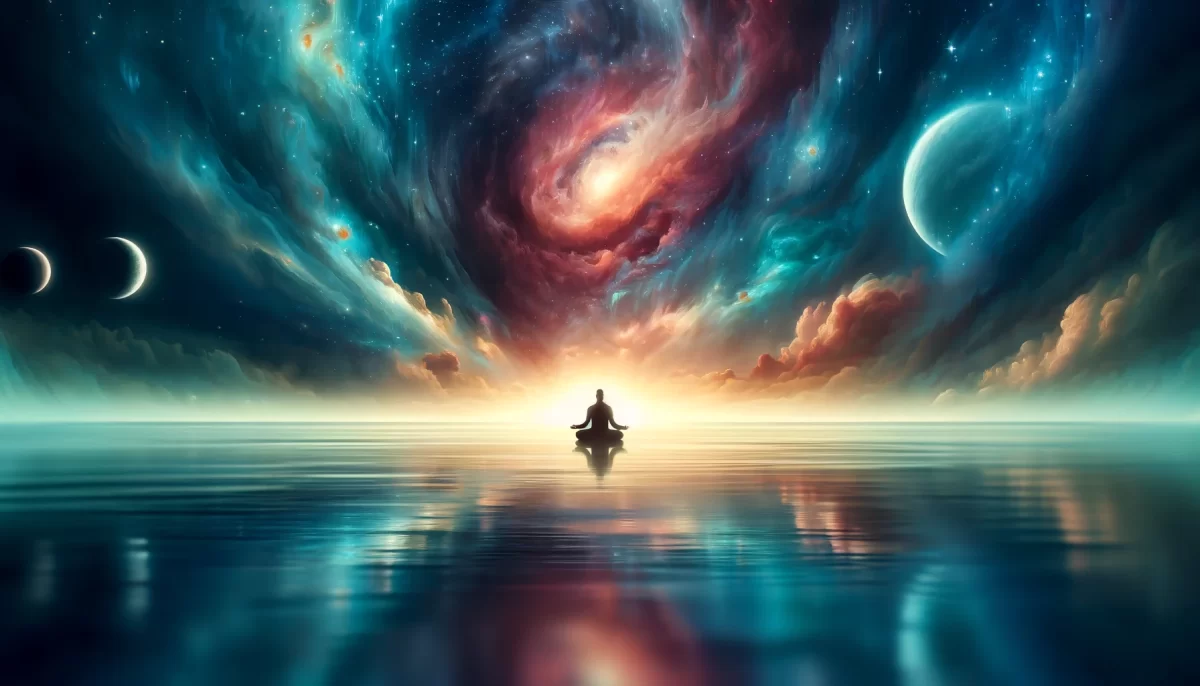
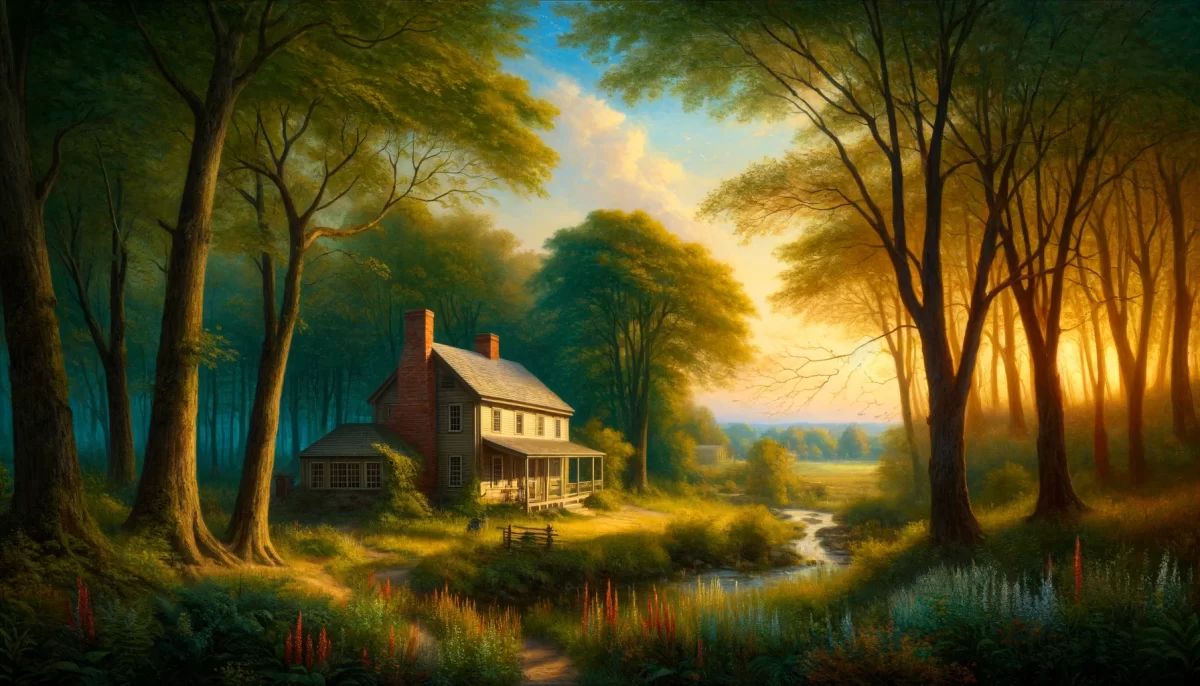
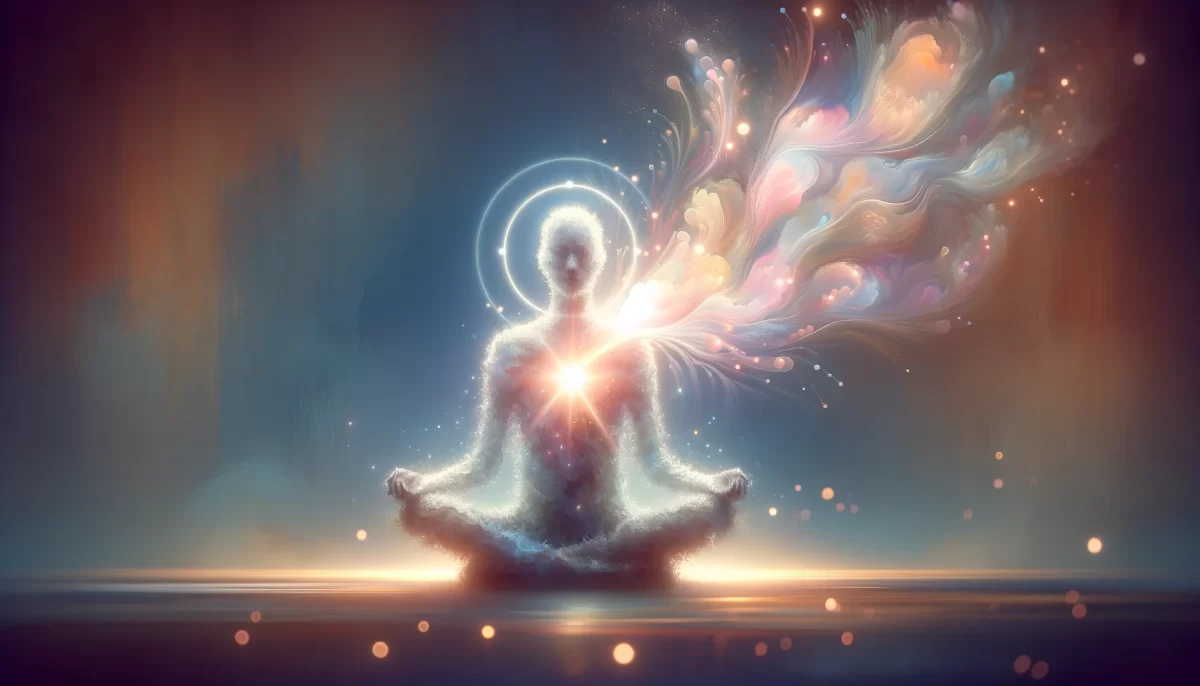
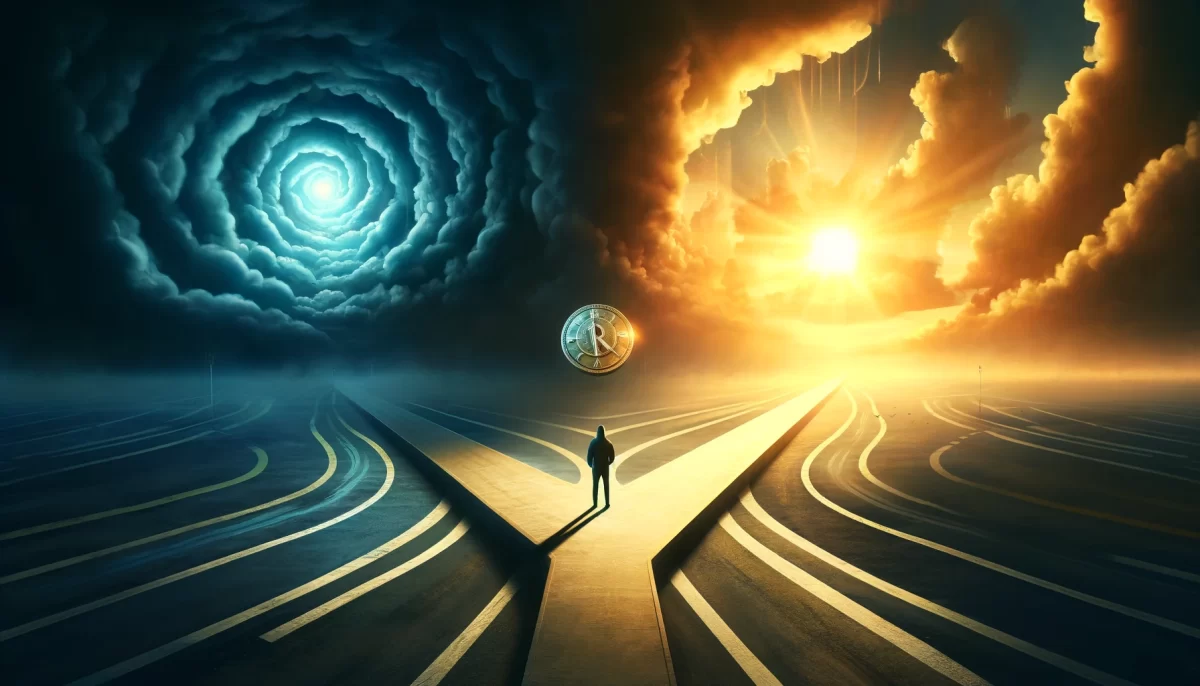
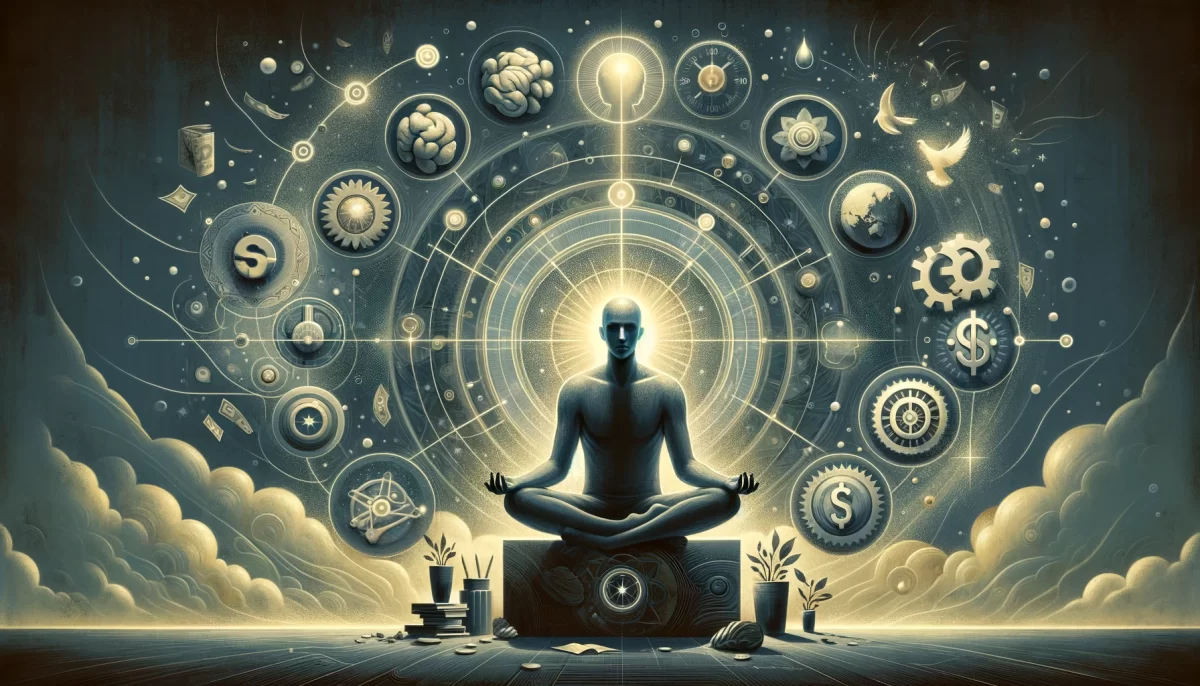
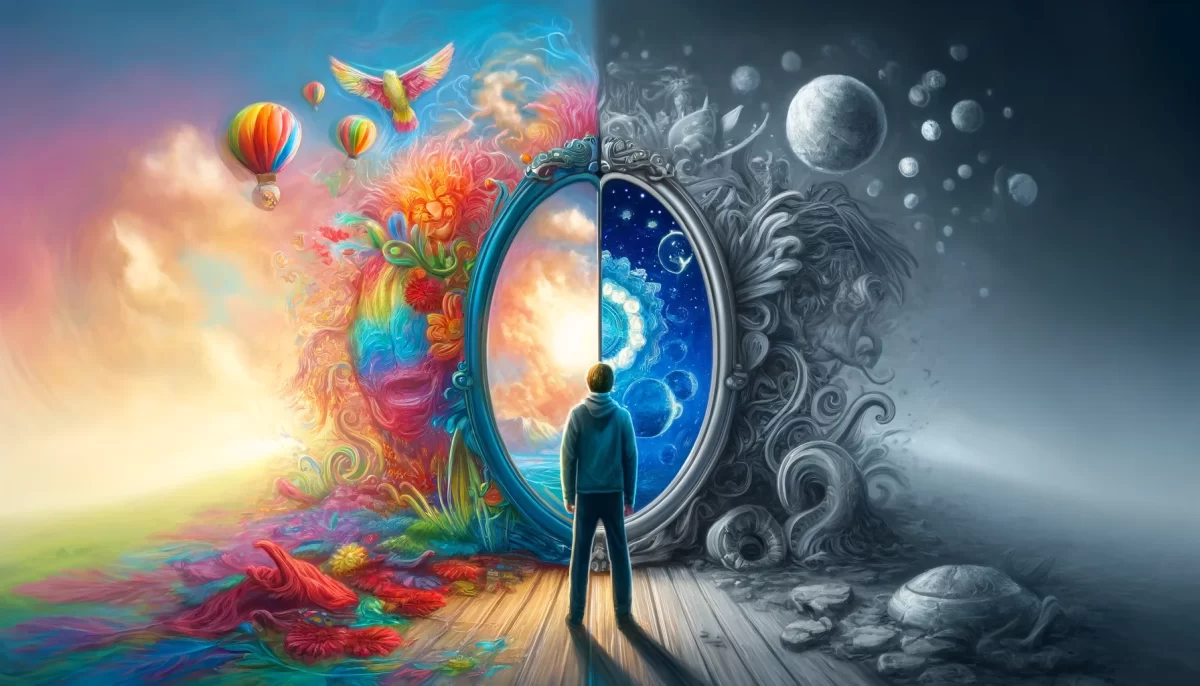
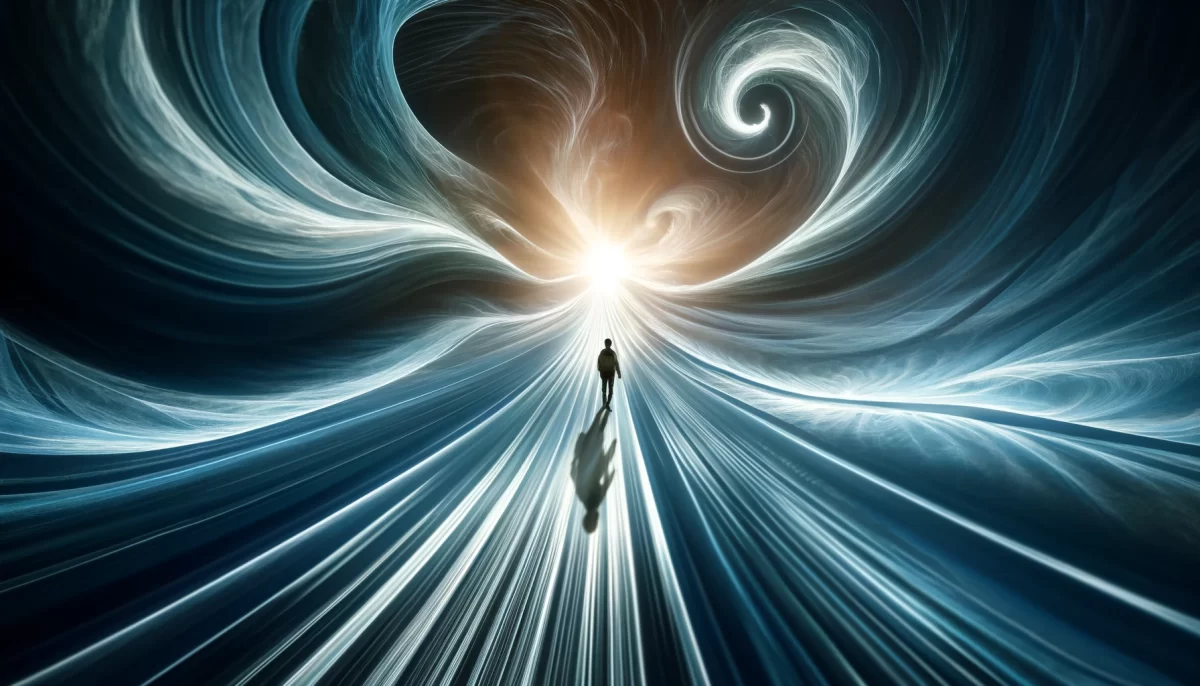
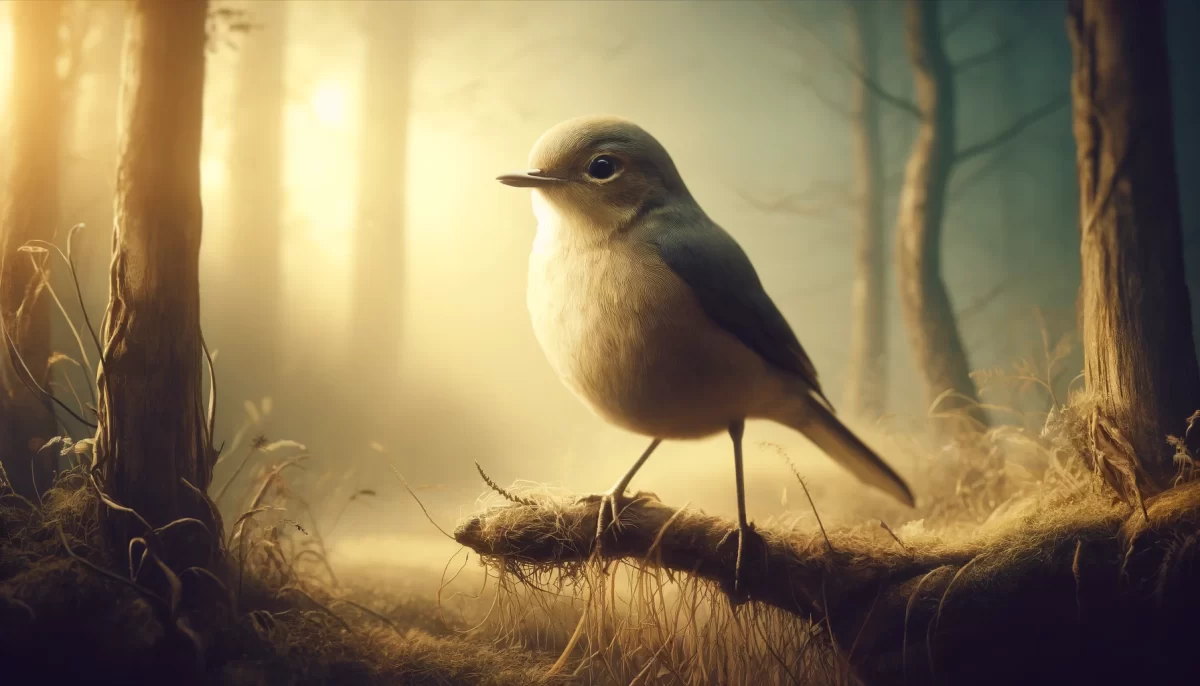
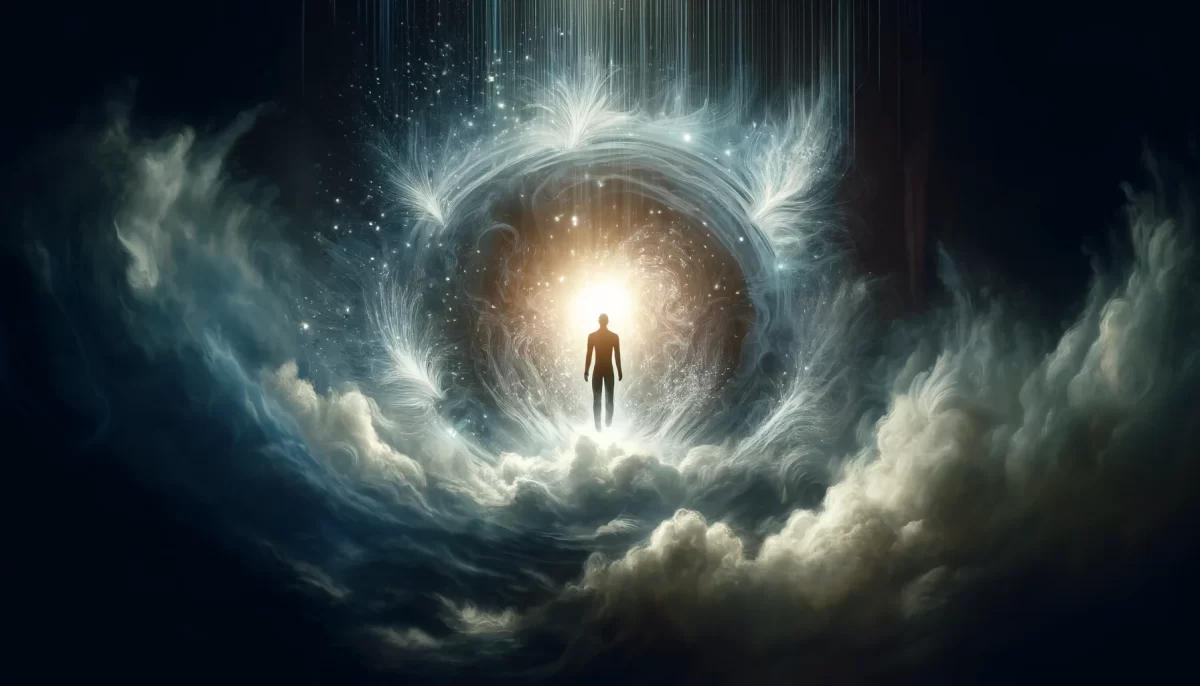
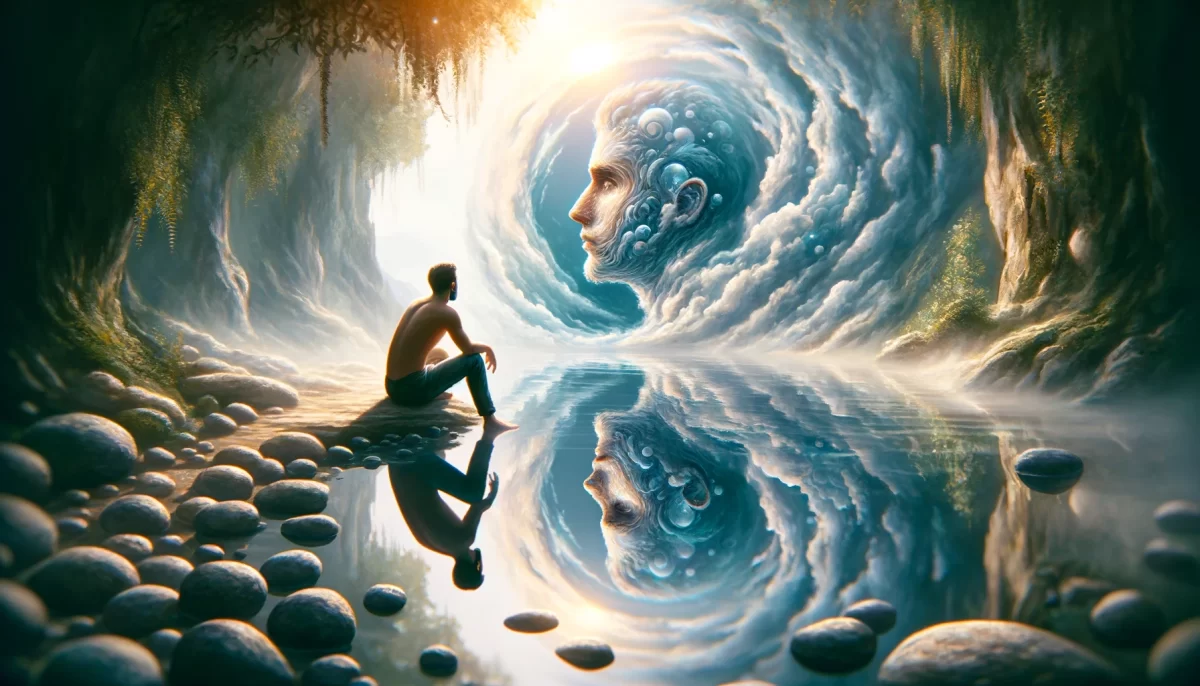
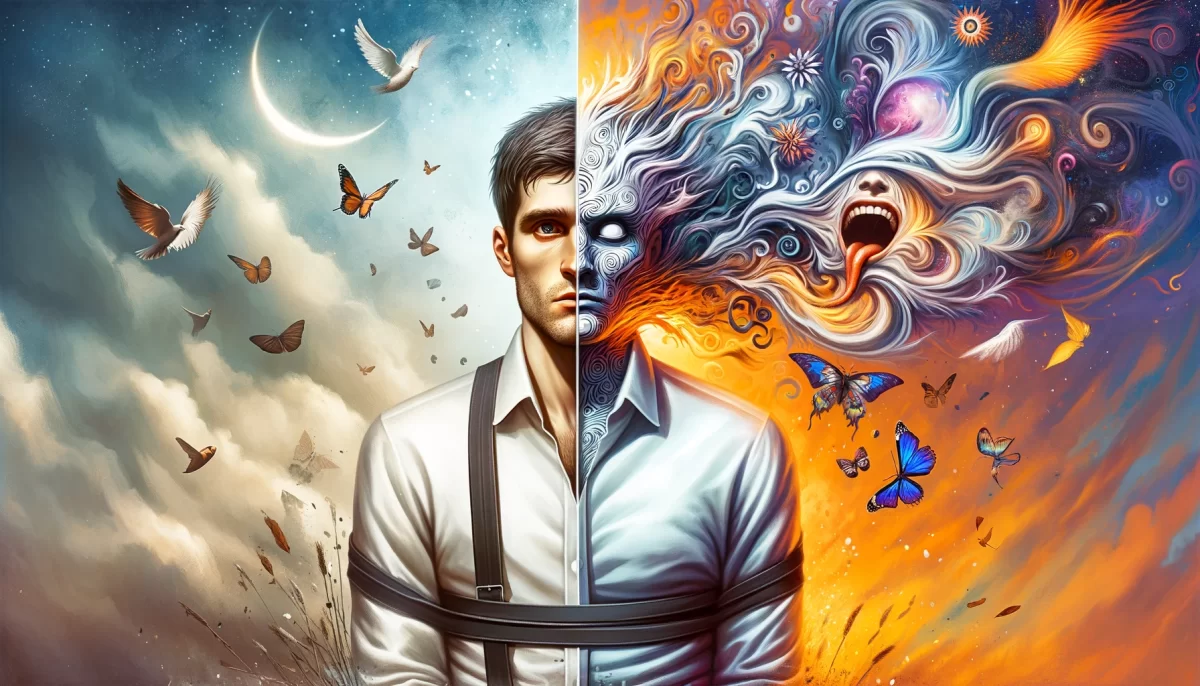
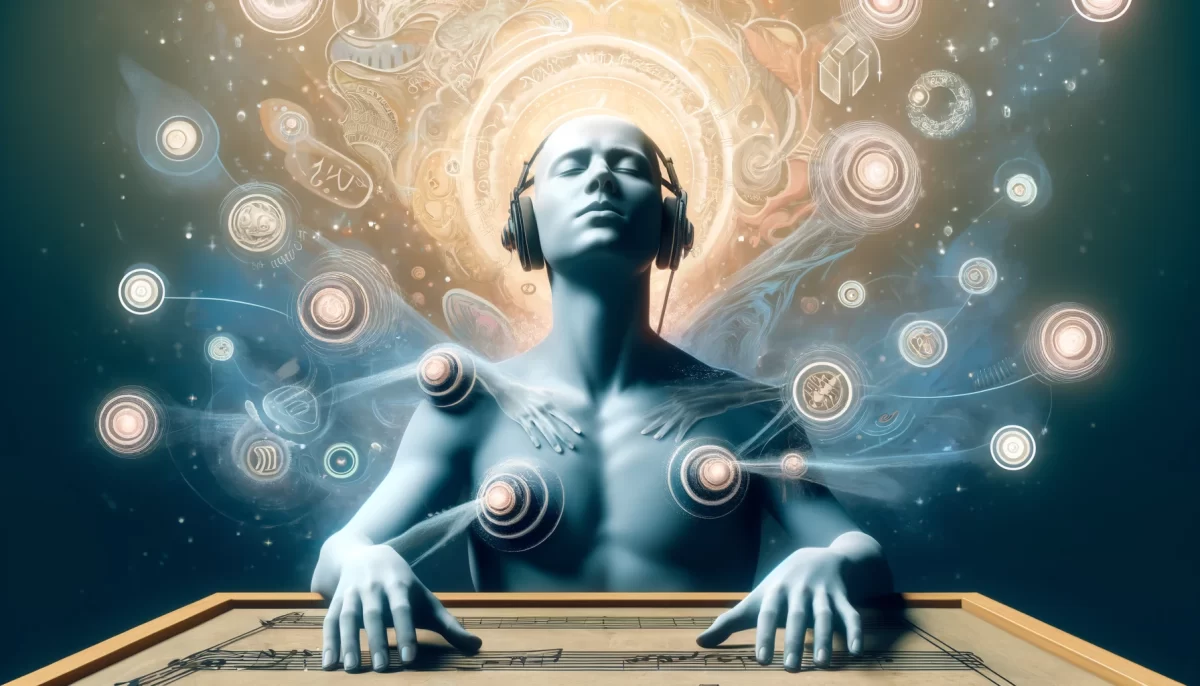
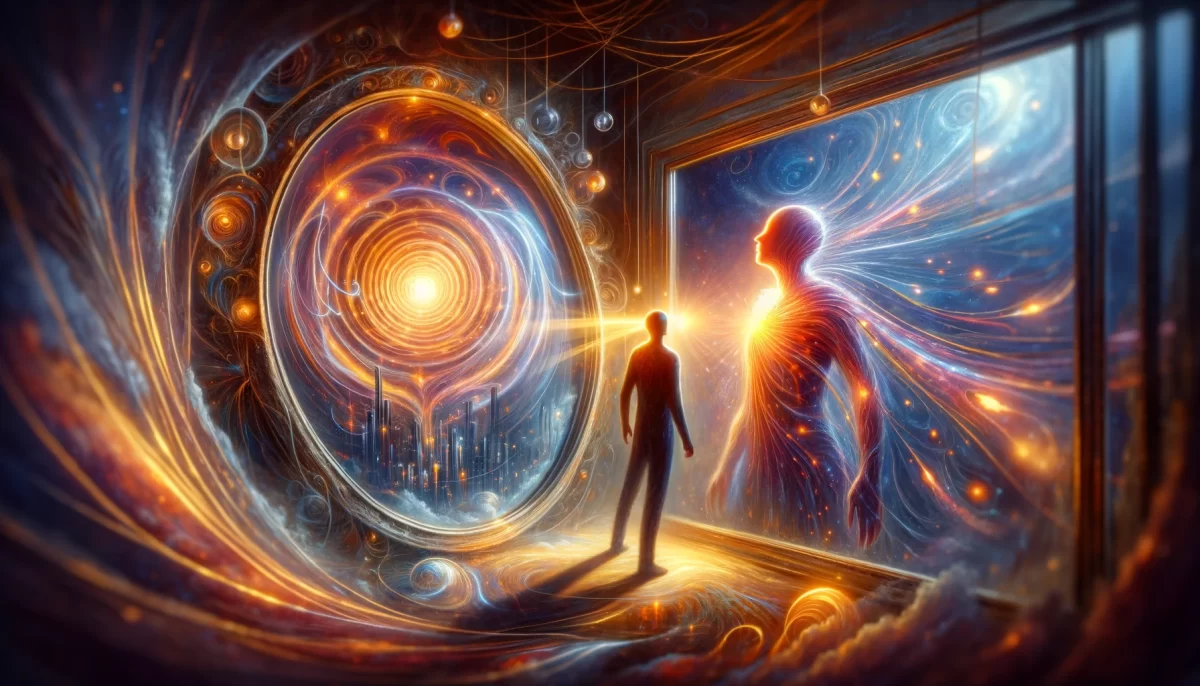
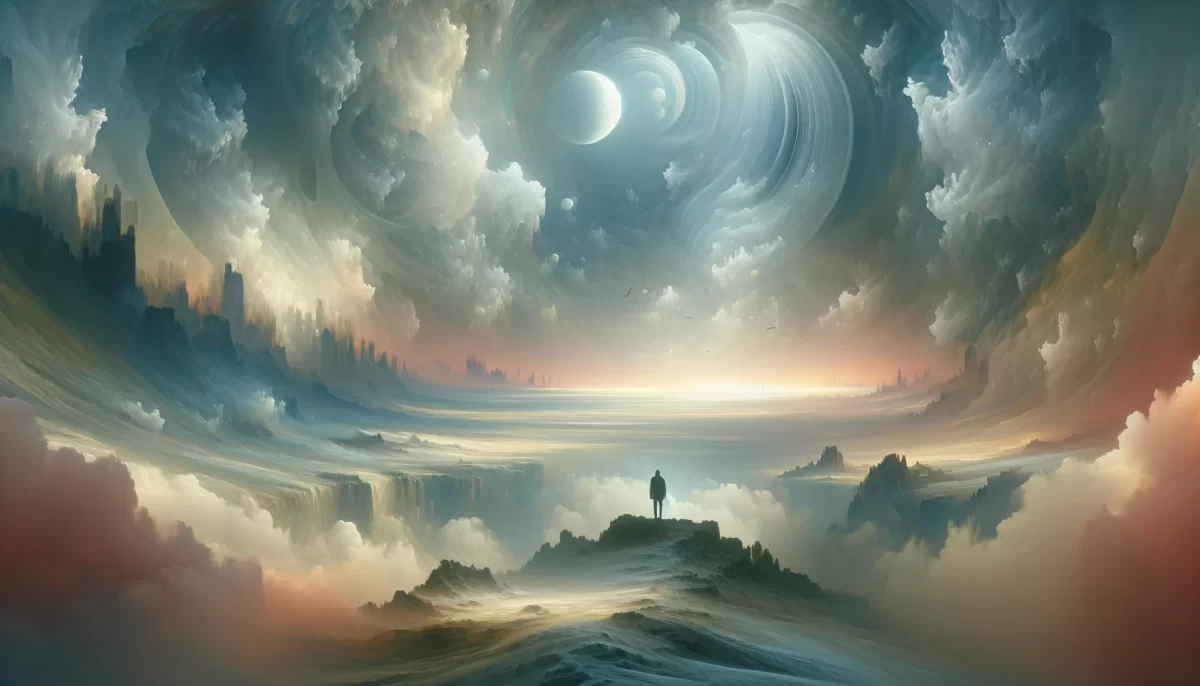
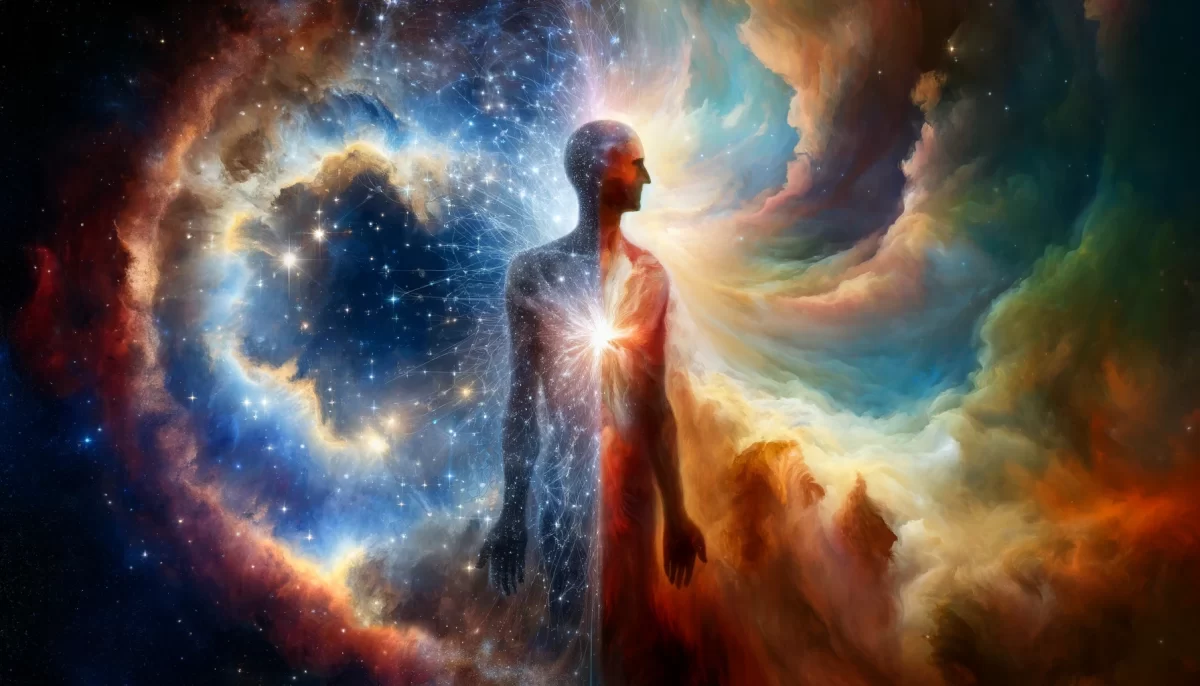
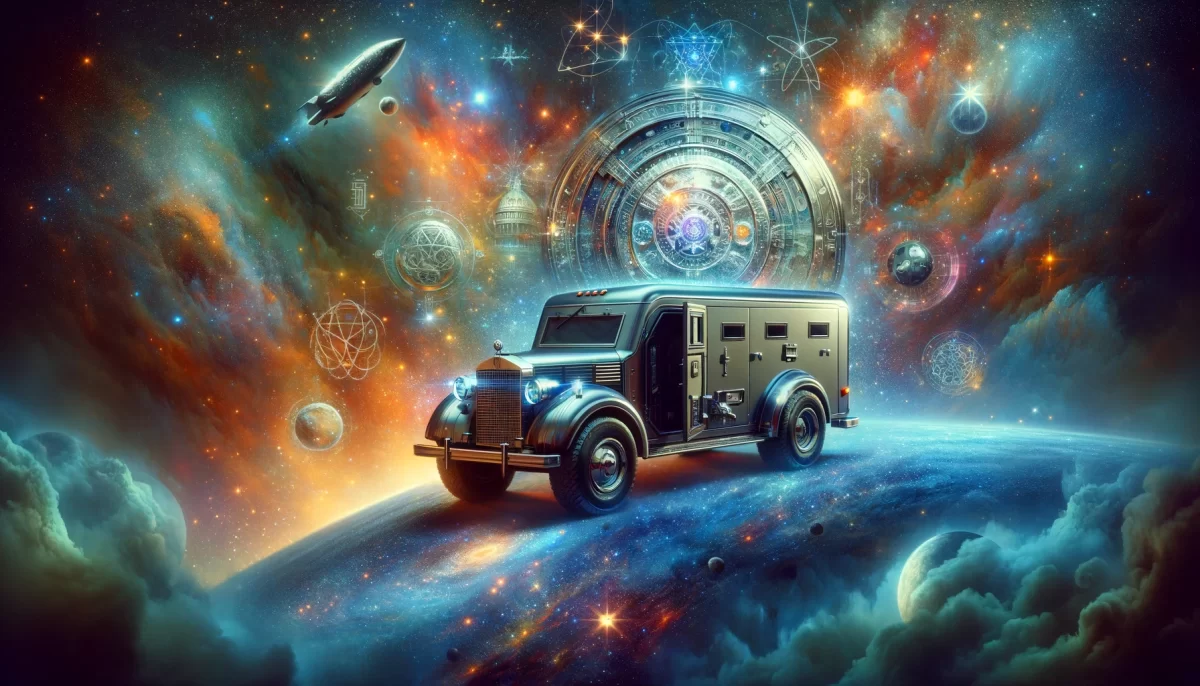
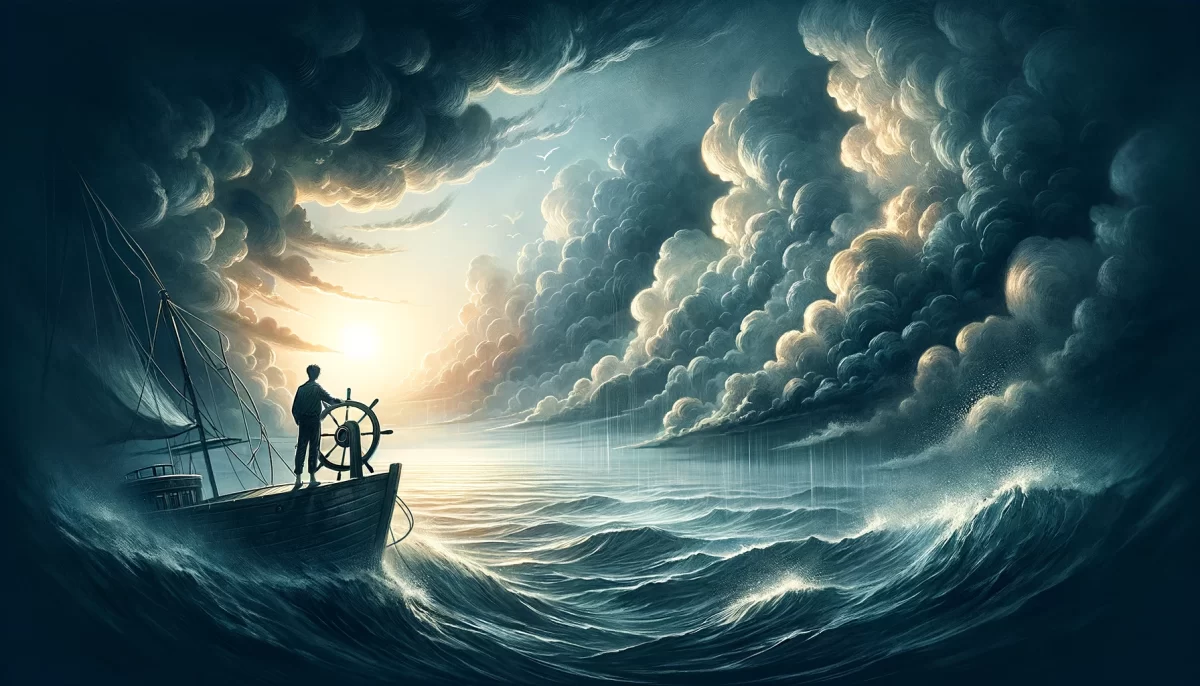
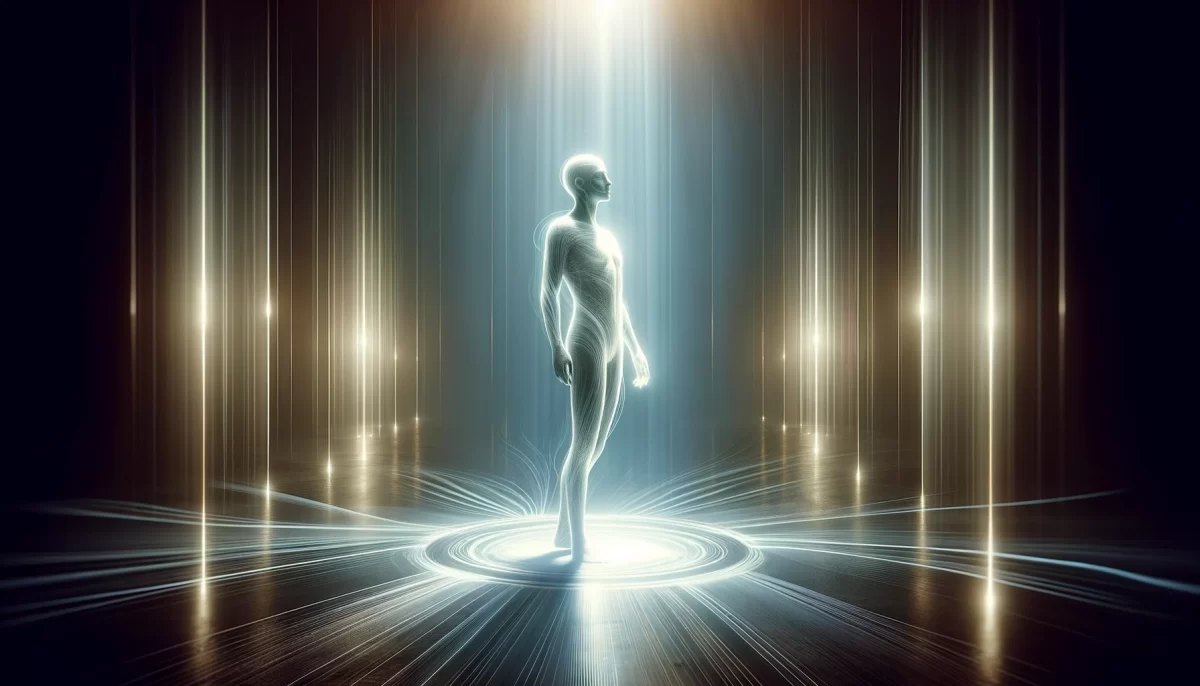
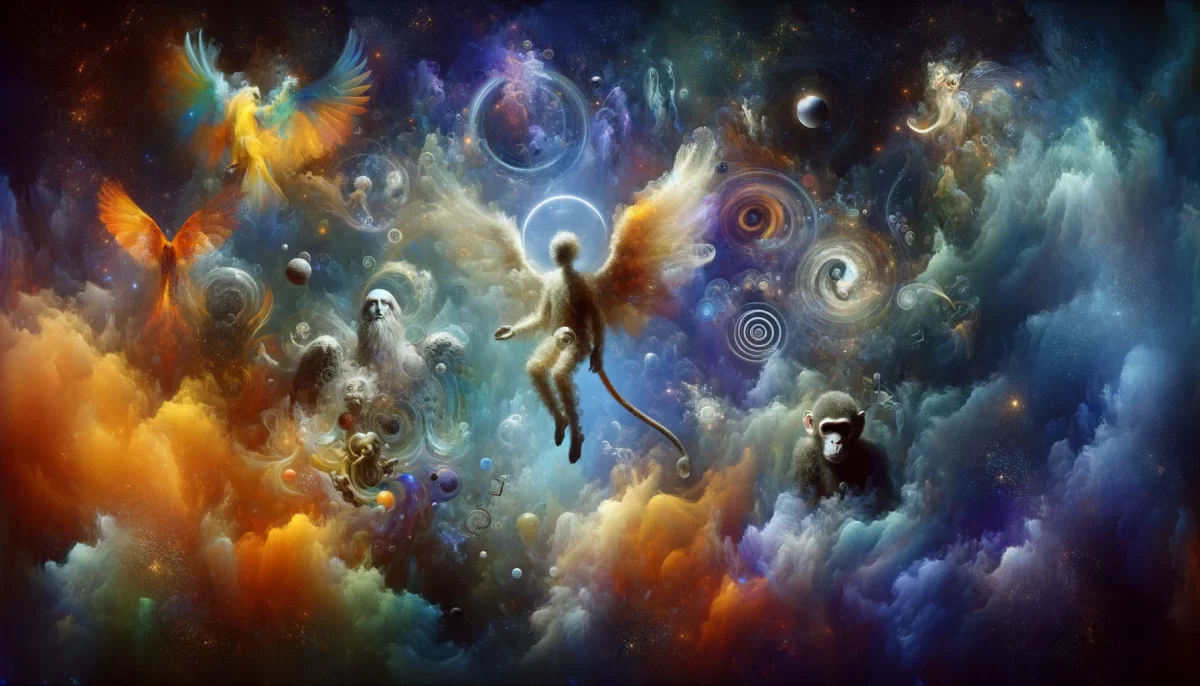
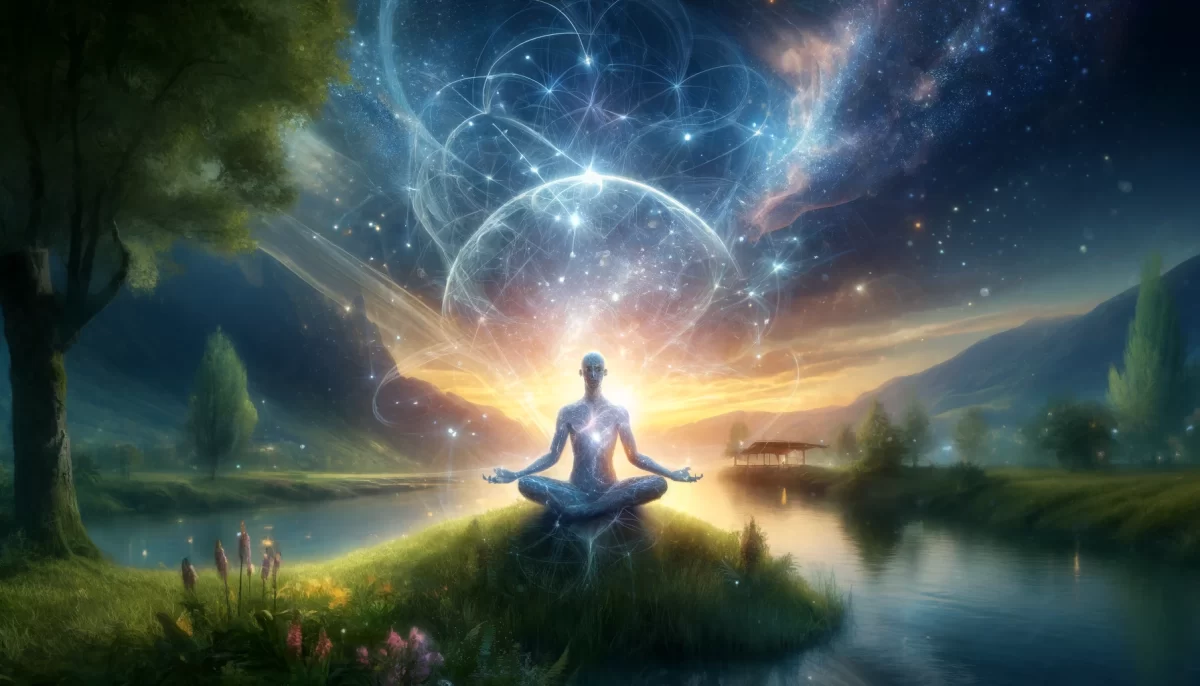
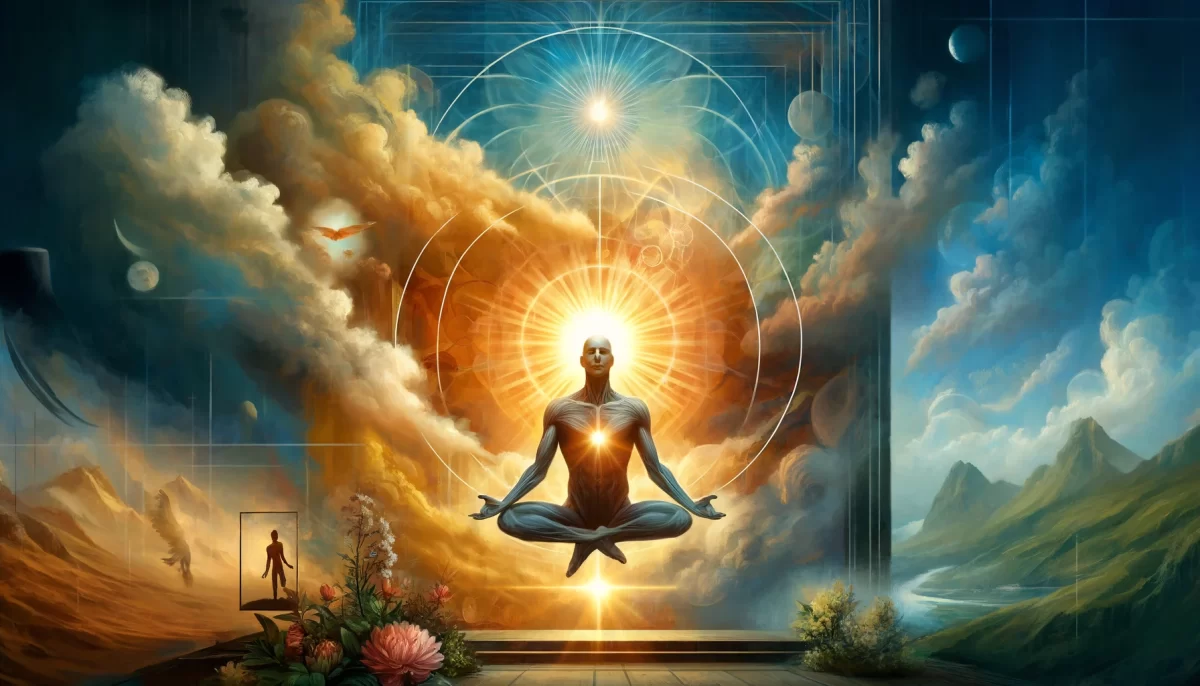
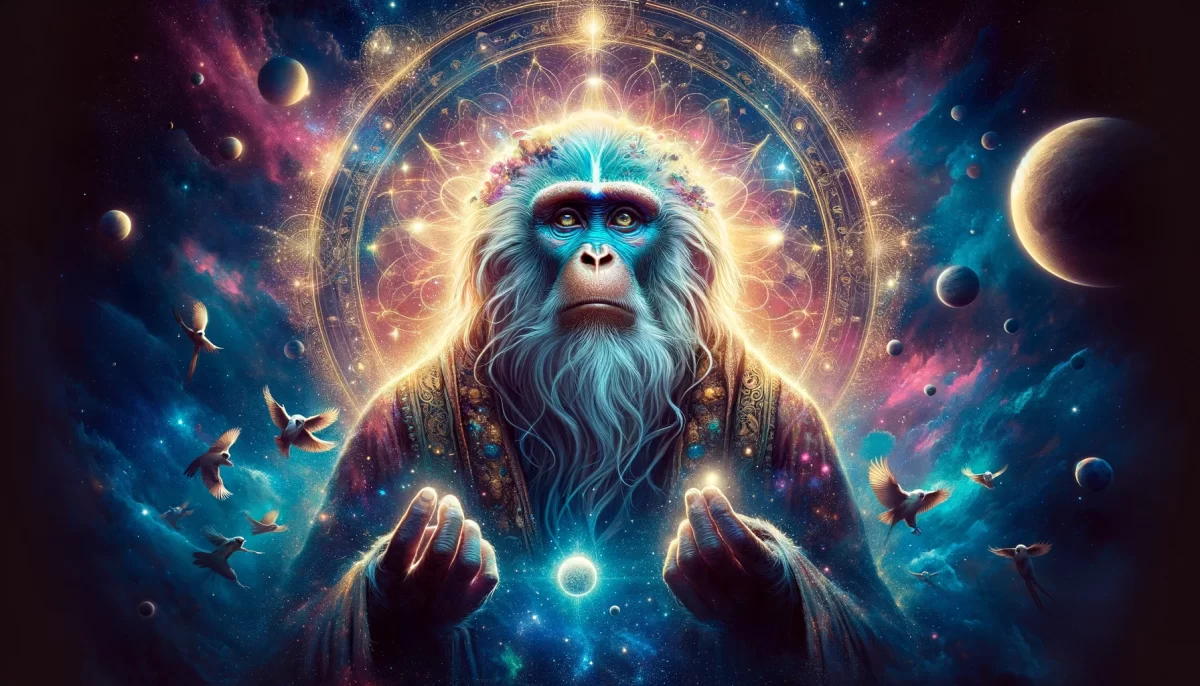
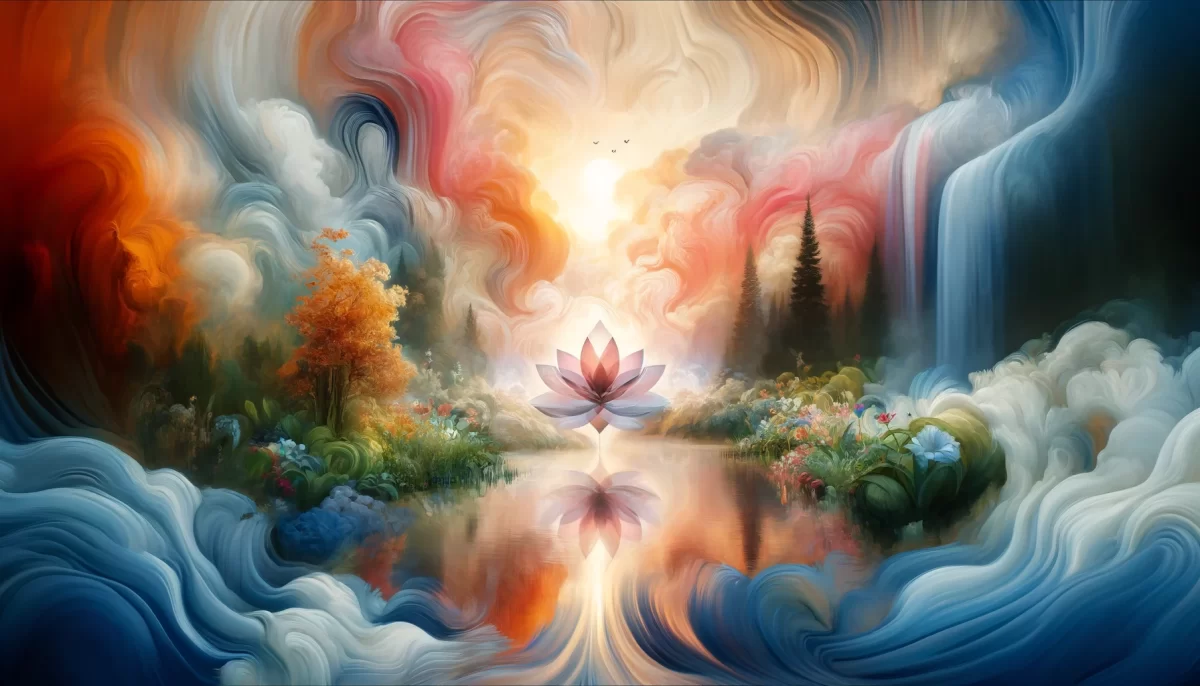
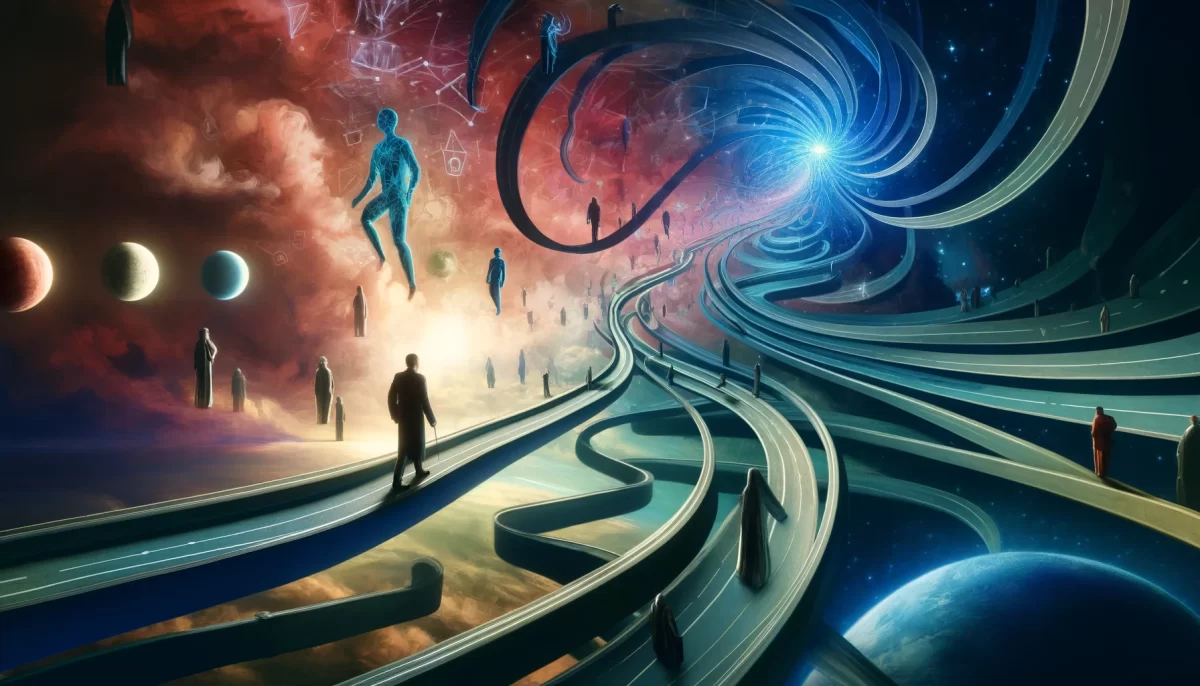
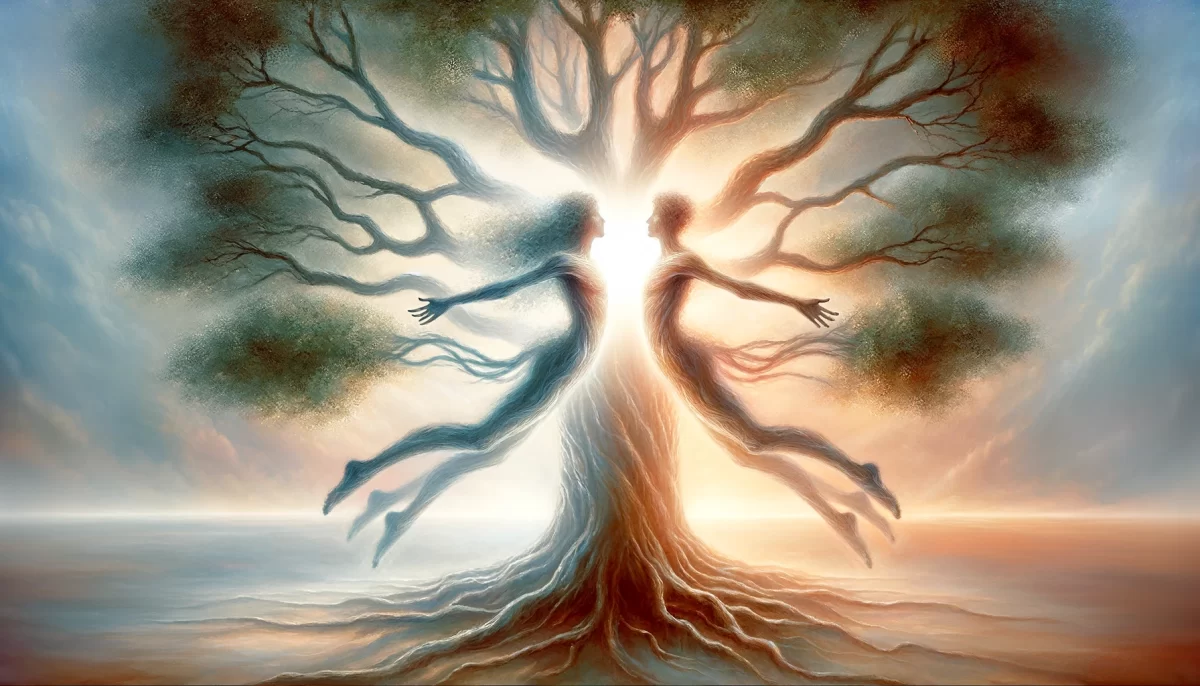
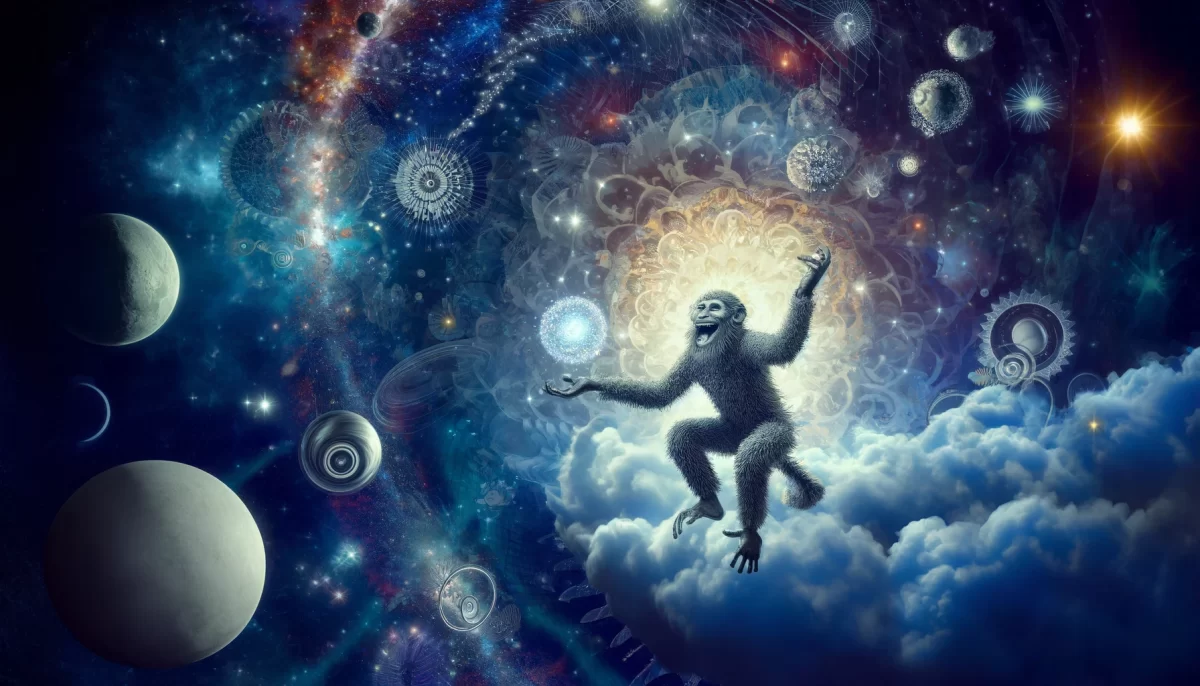
Leave a Reply